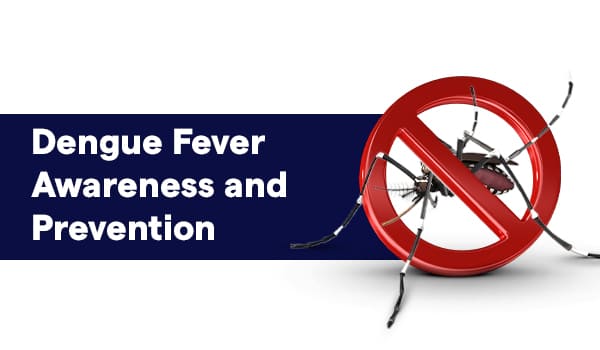
Dengue is transmitted through the bite of an infected Aedes mosquito, most commonly the Aedes aegypti. This mosquito thrives in stagnant water and breeds near human settlements. There are five different strains of the dengue virus, and contracting one doesn't guarantee immunity to others. Subsequent infections with a different strain can lead to severe complications.
⦁ Sudden high fever: Dengue symptoms usually spiking above 104°F (40°C) and lasting for 2–7 days.
⦁ Severe headache, muscle, and joint pain: Dengue fever often causes intense pain, especially in the head, muscles, and joints. This can be quite debilitating.
⦁ Nausea, vomiting, and fatigue: Feeling nauseous, vomiting, and extreme tiredness are common symptoms that can make it difficult to function normally.
Early diagnosis and medical attention are crucial because dengue fever can progress to severe forms, especially in high-risk groups like children and pregnant women. If left untreated, dengue can lead to complications like bleeding, organ failure, and even death.
By seeking medical attention early, doctors can monitor your condition and provide supportive care to help you recover. This may include pain relievers, fluids to prevent dehydration, and monitoring for signs of worsening symptoms. Early diagnosis allows for timely intervention if a severe case is developing.
Beware of Severe Dengue: Don't Ignore Warning Signs
In some cases, dengue can progress to severe forms like dengue hemorrhagic fever (DHF) and dengue shock syndrome (DSS). These conditions can lead to internal bleeding, organ failure, and even death. Warning signs include persistent vomiting, severe abdominal pain, bleeding gums, and black stools.
Prevention is Key: Protecting Yourself and Your Family
The best defense against dengue prevention. Here are some essential tips:
⦁ Eliminate mosquito breeding grounds locally: Regularly clear stagnant water around your home, including in flower pots, old tires, and discarded containers.
⦁ Embrace mosquito nets: Use mosquito nets while sleeping, especially for children and during outbreaks.
⦁ Dress strategically: Wear long-sleeved clothing and full-length pants, particularly during peak mosquito hours (dawn and dusk).
⦁ Repel mosquitoes: Use mosquito repellents containing DEET (diethyltoluamide) or picaridin.
⦁ Stay hydrated: Drink plenty of fluids to prevent dehydration, especially if experiencing a fever or other symptoms.
When in Doubt, Seek Help
If you experience any of the above-mentioned dengue symptoms, immediately consult a doctor from the best medicine hospital in Delhi. Early diagnosis and proper treatment can significantly improve your outcome. Remember, even a mild case of dengue requires medical monitoring.
Dengue season is here. Protect yourself and your family by booking an appointment with Sir Ganga Ram Hospital. Don't wait until it's too late; early detection is the key to dengue treatment. Stay informed and take proactive measures to safeguard.
Book an Appointment with Sir Ganga Ram Hospital.